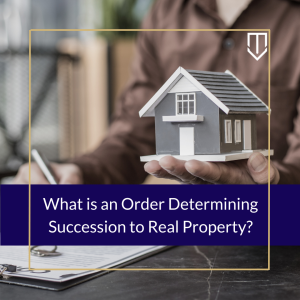 The purpose of this article is to explain the ownership presumption in a probate dispute. This is because property ownership can cause disputes even after death, which must be resolved in the probate or civil courts. (Schlyen v. Schlyen (1954) 43 Cal.2d 361, 370–371.) Specifically, the understanding of how marriage affects ownership presumptions in probate matters was changed in the 2021 case Estate of Wall (Wall). ((2021) 68 Cal.App.5th 168.) This case affects how trial and probate courts will consider ownership disputes. Because this specific case dealt with a probate action, it concerns the property and assets of a decedent. In Wall the court held that the title presumption prevails over the community property presumption.
The purpose of this article is to explain the ownership presumption in a probate dispute. This is because property ownership can cause disputes even after death, which must be resolved in the probate or civil courts. (Schlyen v. Schlyen (1954) 43 Cal.2d 361, 370–371.) Specifically, the understanding of how marriage affects ownership presumptions in probate matters was changed in the 2021 case Estate of Wall (Wall). ((2021) 68 Cal.App.5th 168.) This case affects how trial and probate courts will consider ownership disputes. Because this specific case dealt with a probate action, it concerns the property and assets of a decedent. In Wall the court held that the title presumption prevails over the community property presumption.
What is an Ownership Presumption?
Marriage and death can both affect the presumption of who owns a disputed piece of property. There are two main presumptions which affect these disputes. First, the title presumption is that the property title being in a person’s name means that person will prevail in an ownership dispute. (Pearce v. Briggs (2021) 68 Cal.App.5th 466, 483.) The title presumption is derived from the evidence code. (Evid. Code, § 662 .) Second, the community property presumption is that the property being purchased with community funds of a married couple means the property belongs to the community (both parties) in a property dispute. (In re Brace (2020) 9 Cal.5th 903, 938.) The community property presumption is based on the family law code. (Fam. Code, § 760.) If a court rules the title presumption will prevail that means the person with their name on the title will prevail even if the property was bought during their marriage with community funds.
 California Partition Law Blog
California Partition Law Blog


 An order determining succession to real property is an alternative petition to get a court order transferring the property. (Prob. Code § 13154.) If the estate is small enough, and a successor to the decedent has proof that they are entitled to a certain piece of property, then they may use this process to become a title owner.
An order determining succession to real property is an alternative petition to get a court order transferring the property. (Prob. Code § 13154.) If the estate is small enough, and a successor to the decedent has proof that they are entitled to a certain piece of property, then they may use this process to become a title owner.